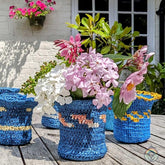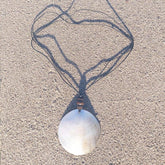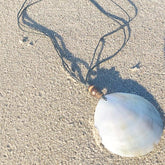World Turtle Day
World Turtle Day is World Turtle Week at Rainbow Life. Read on to find out why….

Turtles are magnificent creatures that belong to one of the oldest reptile groups in the world - which makes them significantly older than snakes, crocodiles, and alligators.
These creatures date back to the time of the dinosaurs, over 200 million years ago. There are a total of 300 species of turtles in the entire world, out of which 129 species are endangered.
Turtles play a vital role in maintaining a healthy & balanced ecosystem.
World Turtle Day is the day to remind us of our responsibilities to protect them and to draw attention to the measures that should be taken to help them survive without human interference.
Here at Rainbow Life we have chosen to donate 5% from every purchase this week of our turtle-related products to Turtle Watch Rekawa, a Turtle Conservation Project in Sri Lanka. In addition, for you, our caring customers, we are offering 15% off all turtle related products.
Why REKAWA?

Millions of years ago, long before humans, marine turtles started coming to the undisturbed beaches of Sri Lanka to lay their eggs.
The World Conservation Union (IUCN) lists all five species of marine turtles (Leatherback, Green turtle, Olive Ridley, Loggerhead and Hawksbill) that frequent Sri Lanka’s shores to nest as endangered, vulnerable, or critically endangered.
All these five species nest on Rekawa beach in the southern part of this island. Sri Lankan government legislation (1972) provides national protection for marine turtles and prohibits harming of turtles.
However, turtle nesting beaches are being disturbed by tourist industry development and feeding habitats, such as coral reefs, are being destroyed by pollution and unsustainable harvesting.
People still eat turtle eggs – and turtles – because they are considered very healthy and festive. Many turtles are accidentally caught and drown in fishing nets each year. The critically endangered Hawksbill turtle has been hunted to the brink of extinction for its carapace to provide raw materials for the illegal ‘tortoiseshell’ trade.
The Turtle Conservation Project (TCP) developed a unique approach to turtle conservation in Rekawa – and continued this up until today. Firstly, it provides in situ protection for turtle nests. This means that eggs remain where they were laid, with nest protectors providing protection across the entire beach. This maximizes the yield of the nests and ensures as many hatchlings as possible survive into the sea.
All nest protectors that are working on Rekawa beach are local men and are former turtle egg poachers. They protect the beach 24 hours a day, 7 days a week, in 6-hour shifts.
The nest-protectors ensure all nests are safe from human poaching and, when possible, from animal predators. Besides these activities they make sure the beach remains clean and support the nightly Turtle Watches by patrolling and spotting turtles as they arrive on the beach, checking on the status of nesting turtles and – if necessary – relocate the eggs to a higher, safer place on the beach if the water could wash away the nest.
Providing this type of in-situ nest protection is the most effective form of turtle nest conservation. When we know a nest is due to hatch, the nest protector regularly checks for activity in the sand and guides the hatchlings to the sea – making sure crabs, birds, dogs and other land predators do not eat them. Late starters are helped and might be spotted by tourists.
Now, if you have read this far we reckon you must be a turtle lover! So, this weekend only, we are offering you a free Indonesian handcrafted stone turtle for any purchases over £30, while stocks last!
Hold one of our soothing tactile stone turtles in the palm of your hand and know you have helped a little piece of Planet Earth today.













Leave a comment
All blog comments are checked prior to publishing